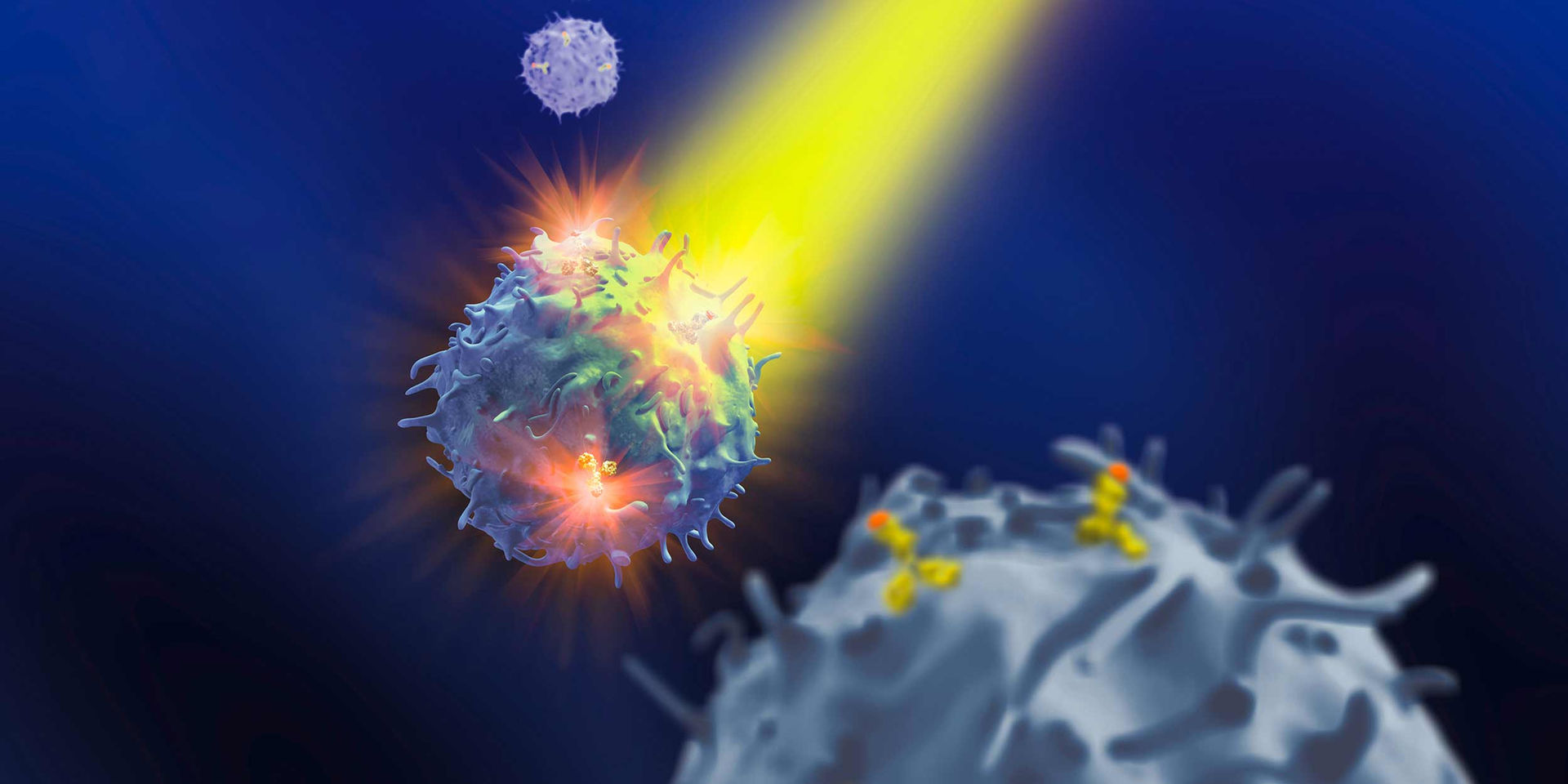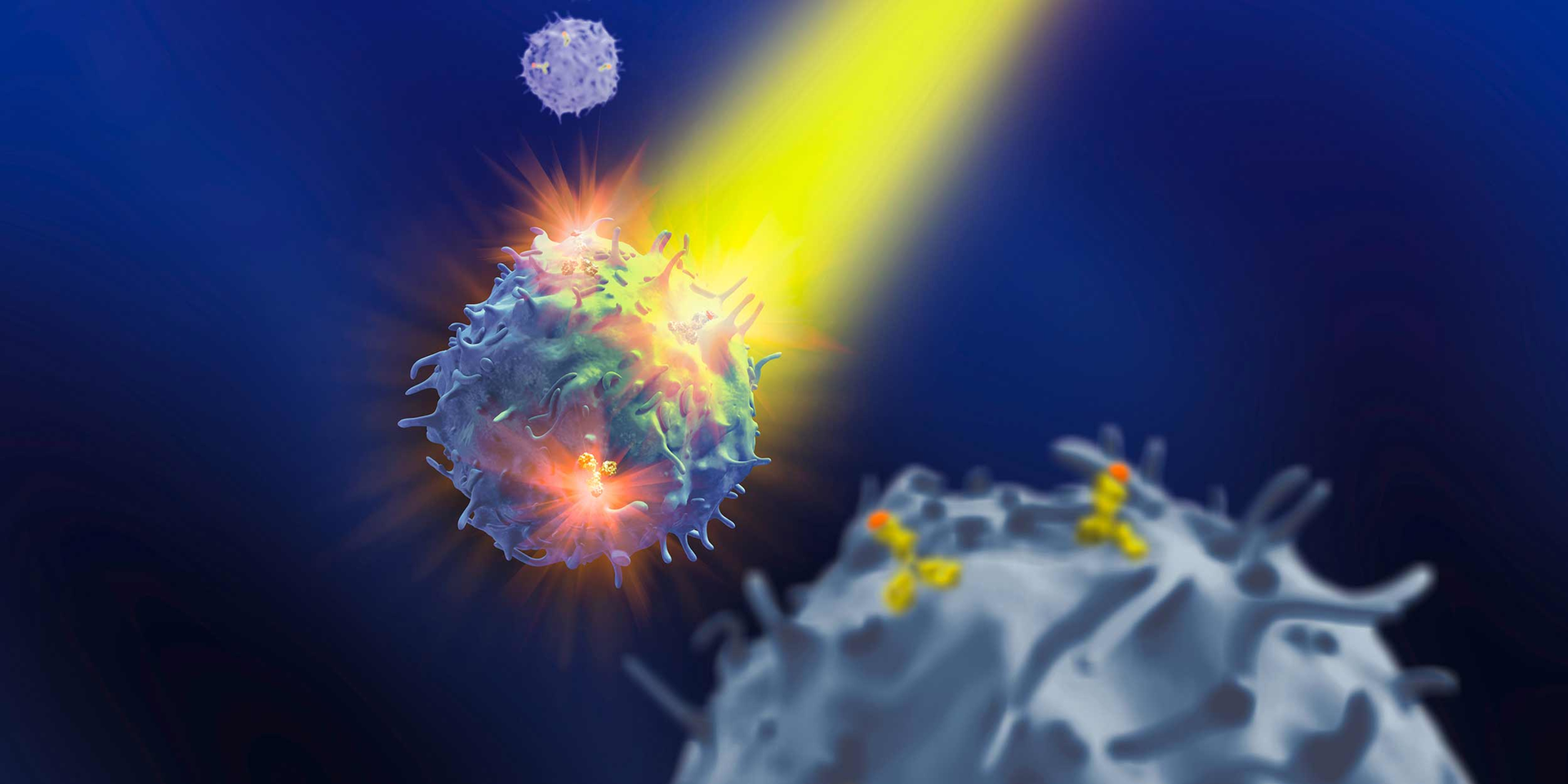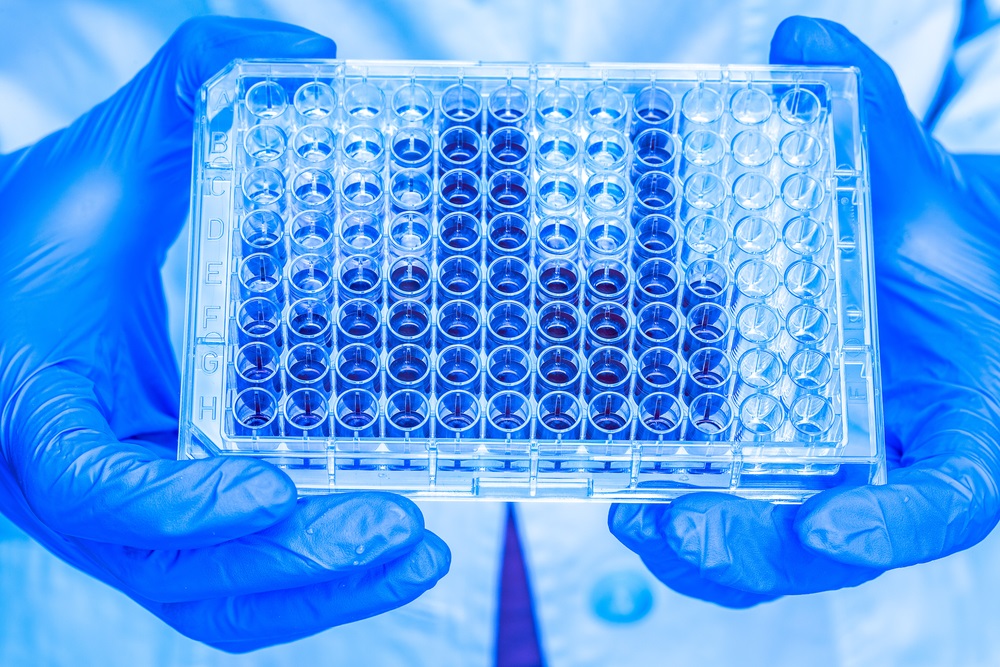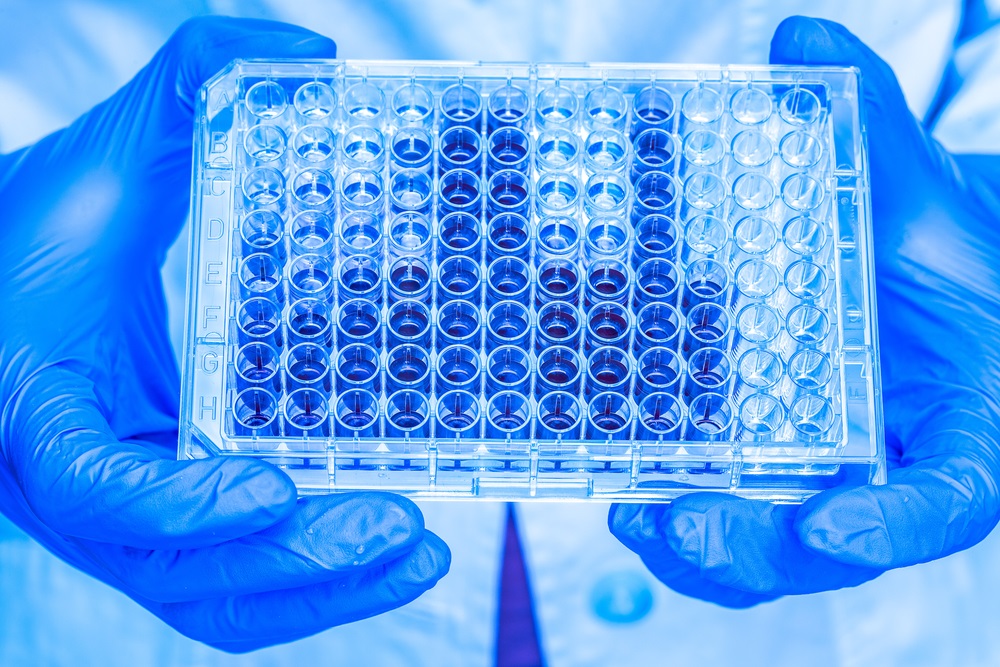TABMED 2023 projects
The main component of the summer program is an active participation in the selected medical and pharmaceutical research project offered by the staff members of the Collegium Medicum, please see the topics and their descriptions below. Interested students are welcome to contact possible advisors for more details concerning the foreseen projects and discuss the dates that the project could be undertaken.
Pharmacy:
- Application of Computer-Aided Drug Design methods in drug research
- Application of in silico methods in the study of drug pharmacokinetics
- Application of in silico methods in the study of drug bioavailability
- Developing new drugs with anticancer properties - molecular modeling phase study
- Synthesis of new 1,2,4-triazole derivatives and evaluation of their potential biological activity
Medicine, health sciences:
- Cancer prevention – solutions and outcomes in selected EU member states
- Cancer prevention strategies for people with intellectual disabilities
- Co-production and co-design models and approaches in healthcare systems
Laboratory medicine, pharmacy:
- Can silybin, the main active component of Silybum marianum extract, modulate blood coagulation?
- Silybum marianum and hemostasis - is there a link? A systematic review of observational studies
Medicine, laboratory medicine, health science:
- Analysis of peripheral blood cell populations using flow cytometry method in patients with neurodegenerative diseases
- Analysis of peripheral blood cell populations using flow cytometry method in patients after bariatric surgery
- Assessment of selected pro and anti-inflammatory parameters in patients with neurodegenerative diseases
- Assessment of selected proinflammatory parameters in obese patients after bariatric surgery (BS)
Application of Computer-Aided Drug Design methods in drug research

The purpose of the internship is to familiarize/enhance students' knowledge of Computer-Aided Drug Design (CADD) methods based on bio- and chemoinformatics research techniques. Today, these techniques are widely used in pharmacy, medicine, biology and chemistry. The research project’s objective is set to elucidate the nature/mechanism of action of bioactive compounds. The object of the research is a group of selected dysrhythmic drugs. During the internship, the student will participate in experiments using a variety of computer programs. The student will also be actively involved in the design of experiments, data analysis and discussion of results.
research tasks: The offer of scientific cooperation is directed to a person who has documented publication of achievements in a given research area. Experience in molecular modeling involving the interaction of ligands with transporting proteins (docking techniques) and molecular dynamics methods are required.
| Supervisor: | Dr hab. Alicja Nowaczyk, prof. UMK (alicja[at]cm.umk.pl) |
| Department of Organic Chemistry | |
| Internship period: | 1 - 31 August 2023 |
| Scientific discipline: | pharmacy |
^ ^ ^ ^ ^
Application of in silico methods in the study of drug pharmacokinetics

Pharmacokinetics describes the processes concerning the fate of a drug/xenobiotic in the body. It determines how the body affects a specific drug/xenobiotic after administration through mechanisms of absorption and distribution, as well as metabolic changes of the substance in the body. The purpose of the internship is to familiarize/enhance students' knowledge of in silico drug testing methods based on bio- and chemoinformatics techniques. Currently, these techniques are widely used in pharmacy, medicine, biology and chemistry. The research goal of the project is approach to clarify selected issues describing the fate of a drug in the body. The object of proposed research is a group of selected antidysrhythmic drugs. During the internship, student will participate in experiments involving a variety of computer programs. The student will also be actively participate in the design of experiments, data analysis and discussion of results.
research tasks: The offer of scientific cooperation is directed to a person who has documented publication of achievements in a given research area. Experience in molecular modeling involving the interaction of ligands with transporting proteins (docking techniques) and molecular dynamics methods are required.
| Supervisor: | Dr hab. Alicja Nowaczyk, prof. UMK (alicja[at]cm.umk.pl) |
| Department of Organic Chemistry | |
| Internship period: | 1 - 31 August 2023 |
| Scientific discipline: | pharmacy |
^ ^ ^ ^ ^
Application of in silico methods in the study of drug bioavailability

Bioavailability describes the fraction of the active ingredient contained in a drug and how long it will be released from a given formulation. It is defined as: the percentage of the administered dose of unchanged drug that reaches the bloodstream (general circulation). Bioavailability is one of the most important parameters that characterize the quality of a pharmaceutical preparation. The bioavailability of a drug administered intravenously is 100%. When administered by other means, such as orally, it is always lower. The purpose of the internship is to familiarize/enhance students' knowledge of in silico methods based on bio- and chemoinformatics research techniques. The research objective of the project is to clarify selected issues describing the bioavailability of a drug in the body. During the internship, student will participate in experiments using a variety of computer programs. The student will also be actively involved in the design of experiments, data analysis and discussion of results.
research tasks: The offer of scientific cooperation is directed to a person who has documented publication of achievements in a given research area. Experience in molecular modeling involving the interaction of ligands with transporting proteins (docking techniques) and molecular dynamics methods are required.
| Supervisor: | Dr hab. Alicja Nowaczyk, prof. UMK (alicja[at]cm.umk.pl) |
| Department of Organic Chemistry | |
| Internship period: | 1 - 31 August 2023 |
| Scientific discipline: | pharmacy |
^ ^ ^ ^ ^
Developing new drugs with anticancer properties - molecular modeling phase study

During the internship student will be acquainted with new drug design methods based on in silico computational chemistry. Nowadays, every medicine introduced to market has to undergo a series of tests including molecular modeling. As a consequence, in silico computational methods are widely used in pharmacy, medicine and allied fields. The aim of the study will be determination of physicochemical and pharmacodynamic properties of selected substances with anticancer activity. The student will be conducting in silico experiments using specialized drug design software as a part of internship. Moreover, the intern will be actively involved in the design of experiments, data analysis, discussion of the results and also determining conclusions from the study.
Research tasks: The offer of cooperation is directed to a person who has documented publication of achievements in a given research area. Experience in "in silico" computational chemical methods are required.
| Supervisor: | Łukasz Fijałkowski, PhD (l.fijalkowski[at]cm.umk.pl) |
| Department of Organic Chemistry | |
| Internship period: | 1 - 31 August 2023 |
| Scientific discipline: | pharmacy |
^ ^ ^ ^ ^
Synthesis of new 1,2,4-triazole derivatives and evaluation of their potential biological activity

The search for new medicinal substances is an important task in the search for better and better drugs for particular diseases. The main sources of new substances are compounds of natural origin (e.g. plant extracts) as well as those obtained by chemical synthesis. The 1,2,4-triazole moiety is an important pharmacophore present in many compounds with various biological activity: antibacterial, antifungal, antiviral, anticonvulsant, anticancer, anti-inflammatory and others. The 1,2,4-triazole ring occurs, among others, in the following drugs: fluconazole, itraconazole, alprazolam, estazolam, ribavirin, rizatriptan, anastrazole. The aim of the project is to obtain a series of new 1,2,4-triazole derivatives and to estimate their potential biological activity using computational techniques. Laboratory research tasks will include the synthesis of starting compounds (amidrazones), and then obtaineing 1,2,4-triazole derivatives in the reaction of amidrazones with glutartic anhydride. The obtained compounds will be purified by crystallization characterized by spectroscopic methods (1H NMR, 13C NMR). Computational research tasks will include predicting bioavailability parameters of the obtained compounds and their potential biological activity with the use of selected programs, eg Molinspiration, PASS. After the end of the project, the obtained 1,2,4-triazole derivatives will be sent for appropriate biological studies.
| Supervisor: | Renata Paprocka, PhD (renata.bursa[at]cm.umk.pl) |
| Department of Organic Chemistry, Faculty of Pharmacy | |
| Internship period: | 24 July - 18 August 2023 |
| Scientific discipline: | pharmacy |
^ ^ ^ ^ ^
Cancer prevention – solutions and outcomes in selected EU member states

Research description and tasks: The role of preventive interventions is to prevent disease, early detection, and anticipation of the occurrence of adverse disease symptoms. An additional role of prevention is to educate and raise awareness of the need to take up certain habits, such as lifestyle changes and self-examination. Currently, EU member states work on strengthening their national policies to raise awareness, reduce exposure to cancer risk factors, and also ensure that people are provided with the proper information. Between 30–50% of all cancer cases are preventable and prevention interventions offer the most cost-effective long-term strategy for the control of cancer. To achieve these goals WHO has issued the Global Action Plan for the Prevention and Control of NCDs 2013–2020 which provides a road map to reduce premature mortality from NCDs by 2025. The tasks of the proposed project will include analyzing the proposed plan and interventions implemented in selected EU member states through the analysis of the literature data concerning the already existing and implemented interventions, a comparison of their outcomes, and possible further directions.
| Supervisor: | Oliwia Kowalczyk, PhD, NCU Assistant Professor (oliwia.kowalczyk[at]cm.umk.pl) |
| Research and Education Unit for Communication in Healthcare, Faculty of Medicine | |
| Internship period: | August 2023 |
| Scientific discipline: | medicine, health sciences |
^ ^ ^ ^ ^
Cancer prevention strategies for people with intellectual disabilities

Research description and tasks: Disability is an integral part of being human and is experienced by 1 in 6 people worldwide; the estimations are growing due to the increase in non-communicable diseases and length of life. IDs are emerging and the prevalence trends will continue to challenge healthcare systems and providers globally, especially due to the deficit in sustainable program models which leaves IDs highly vulnerable, very often subjected to isolation, and expected to behave abnormally by their environment. It is also common to underestimate their developmental capabilities while exposing their limitations. Recently, the lifespan of people with ID has increased significantly which has resulted in a rising incidence of age-related illnesses and NCDs, including cancer. Recognizing the early symptoms of cancer in a population with cognitive impairment poses difficulties for both the carers and professionals. The tasks of the proposed project will include the analysis of the literature data concerning the already existing and implemented interventions, a comparison of their outcomes in selected EU member states, and recommended further directions.
| Supervisor: | Oliwia Kowalczyk, PhD, NCU Assistant Professor (oliwia.kowalczyk[at]cm.umk.pl) |
| Research and Education Unit for Communication in Healthcare, Faculty of Medicine | |
| Internship period: | August 2023 |
| Scientific discipline: | medicine, health sciences |
^ ^ ^ ^ ^
Co-production and co-design models and approaches in healthcare systems

Research description and tasks: Co-approaches to overcome the knowledge-to-practice gap, such as co-production or co-design are widely discussed recently. A shift from hierarchical models of evidence favoring scientific/medical knowledge to forms where the patient’s voice is at the forefront has been observed. These approaches include bringing patients as active and equal partners, valuing all types of knowledge, and using creative approaches to understand and solve problems. The project will focus on these approaches, including interventions leading to developing a shared understanding, identifying and meeting patients’ needs, and creating trust and confidence. The tasks will include a literature review and analysis of the existing strategies worldwide, with a special interest in people with intellectual disabilities.
| Supervisor: | Oliwia Kowalczyk, PhD, NCU Assistant Professor (oliwia.kowalczyk[at]cm.umk.pl) |
| Research and Education Unit for Communication in Healthcare, Faculty of Medicine | |
| Internship period: | August 2023 |
| Scientific discipline: | medicine, health sciences |
^ ^ ^ ^ ^
Can silybin, the main active component of Silybum marianum extract, modulate blood coagulation?

The health-promoting properties of Silybum marianum have been known for centuries. The extract from this plant has several biological properties, of which hepatoprotection is of particular importance. Previous studies by other authors have shown that Silybum marianum extract can affect the blood coagulation process, mainly by modulating the activity of platelets. Nevertheless, the plant extract’s effect on the plasma coagulation system is unknown. For this reason, the aim of this study carried out as part of the TABMED Program, is to assess the effect of Silybum marianum’s main active flavonolignan, silybin, on the basic parameters evaluating the plasma blood coagulation system. The study will determine the impact of silybin solutions of various levels on three laboratory parameters, namely prothrombin time (PT), activated partial thromboplastin time (aPTT) and fibrinogen levels. These three markers describe the extrinsic, intrinsic and final common blood coagulation pathways. The study will use reference plasma from healthy volunteers. Clotting times (PT, aPTT) and fibrinogen levels will be measured using a Coag 4D coagulometer. With the participation of a tutor, the student will also carry out a preliminary statistical analysis of the results obtained. The study will help to understand whether silybin affects the blood coagulation process and what is the direction of these signs.
| Supervisor: | Associate Professor Artur Słomka, PhD, DSc (artur.slomka[at]cm.umk.pl) |
| Department of Pathophysiology | |
| Internship period: | August 2023 |
| Scientific discipline: | laboratory medicine, pharmacy |
^ ^ ^ ^ ^
Silybum marianum and hemostasis - is there a link? A systematic review of observational studies

One of the forms of searching for answers to questions bothering a scientist is to perform a systematic review with a meta-analysis. The purpose of such a scholarly synthesis is to summarize the literature published so far in a specific field systematically and in a very orderly manner. This is thanks to a rigorous methodology, allowing the selection of manuscripts that meet the inclusion criteria from bibliographic databases, which helps minimize bias during the analysis of the results. A systematic review may be combined with a meta-analysis, i.e., a quantitative analysis of previous results by other authors. This research project aims to familiarize international students with the principles of conducting a systematic review. The primary goal will be to assess the relationship between Silybum marianum and human hemostasis using a systematic review. The student will learn the rules of registering a systematic review in PROSPERO. The rules for implementing a systematic review by the Preferred Reporting Items for Systematic Reviews and Meta-Analyses (PRISMA) statement will also be discussed in detail. The student will independently perform a systematic review based on three bibliographic databases. If the extracted data are sufficient, the student, with the participation of the scientific supervisor, will conduct a meta-analysis of the obtained results. The completed synthesis of research data will be used to prepare publications for the journal from the Philadelphia List.
| Supervisor: | Associate Professor Artur Słomka, PhD, DSc (artur.slomka[at]cm.umk.pl) |
| Department of Pathophysiology | |
| Internship period: | August 2023 |
| Scientific discipline: | laboratory medicine, pharmacy |
^ ^ ^ ^ ^
Analysis of peripheral blood cell populations using flow cytometry method in patients with neurodegenerative diseases

The task of the student involved in the implementation of the presented project will be to comprehensively design a research experiment of the phenotype analysis and differentiation of the population of peripheral blood mononuclear cells (PBMC), including lymphocytes and monocytes. The analysis of changes in the phenotype of the immune system cells and the study of the quantitative composition of their individual subpopulations is a widely used method used by researchers around the world to search for the causes of various diseases, as well as the impact of various therapies used in treatment of diseases. Hence, it is necessary to properly design the research panel, which is including a several number of activities:
- Appropriate selection of markers differentiating individual cells.
- Correct selection of fluorochromes and their correct compensation.
- Correct processing of biological material used for analysis.
- Correct collection of cytometric data and their analysis, guaranteeing the reliability and repeatability of the obtained results.
- Correct design of the research panel differentiating the subpopulations of lymphocytes and monocytes of peripheral blood.
- Analysis and presentation of the obtained results showing the correctness and repeatability of the designed method, in correlation with the data found in the literature.
| Supervisors: | Dr hab. Mariusz Kozakiewicz, prof. UMK (markoz[at]cm.umk.pl) |
| mgr Maciej Kłosowski | |
| Department of Geriatrics, Division of Biochemistry and Biogerontology | |
| Internship period: | August 2023 |
| Scientific discipline: | medicine, laboratory medicine, health science |
^ ^ ^ ^ ^
Analysis of peripheral blood cell populations using flow cytometry method in patients after bariatric surgery

The task of the student involved in the implementation of the presented project will be to comprehensively design a research experiment of the phenotype analysis and differentiation of the population of peripheral blood mononuclear cells (PBMC), including lymphocytes and monocytes. The analysis of changes in the phenotype of the immune system cells and the study of the quantitative composition of their individual subpopulations is a widely used method used by researchers around the world to search for the causes of various diseases, as well as the impact of various therapies used in treatment of diseases. Hence, it is necessary to properly design the research panel, which is including a several number of activities:
- Appropriate selection of markers differentiating individual cells.
- Correct selection of fluorochromes and their correct compensation.
- Correct processing of biological material used for analysis.
- Correct collection of cytometric data and their analysis, guaranteeing the reliability and repeatability of the obtained results.
- Correct design of the research panel differentiating the subpopulations of lymphocytes and monocytes of peripheral blood.
- Analysis and presentation of the obtained results showing the correctness and repeatability of the designed method, in correlation with the data found in the literature.
| Supervisors: | Dr hab. Mariusz Kozakiewicz, prof. UMK (markoz[at]cm.umk.pl) |
| mgr Maciej Kłosowski | |
| Department of Geriatrics, Division of Biochemistry and Biogerontology | |
| Internship period: | August 2023 |
| Scientific discipline: | medicine, laboratory medicine, health science |
^ ^ ^ ^ ^
Assessment of selected pro and anti-inflammatory parameters in patients with neurodegenerative diseases

The aim of the project is to introduce the visisting student with the immunoenzymatic method that allows the assessment of selected pro and anti-inflammatory parameters in patients with neurodegenerative diseases. Literature reports increasingly suggest that increased oxidative stress accompanying neurodegenerative diseases promotes the accumulation of abnormal proteins such as β-amyloid, α-synuclein, tau protein and thus contributes to the development of inflammation. The response of microglial cells is the secretion of large amounts of. Such stimulation stimulates astrocytes to the synthesis of pro-inflammatory proteins and thus promotes the formation of insoluble forms of pathological proteins and negatively affects the integrity of the blood-brain barrier.
Research tasks:
- The analysis of the literature data concerning the potential markers of neurodegenerative diseases
- The use of immunoenzymatic test (ELISA) for detection of selected pro and anti-inflammatory parameters
- Data analysis and interpretation of results
- Correct design of the research panel differentiating the subpopulations of lymphocytes and monocytes of peripheral blood.
- Analysis and presentation of the obtained results showing the correctness and repeatability of the designed method, in correlation with the data found in the literature.
| Supervisors: | Dr hab. Mariusz Kozakiewicz, prof. UMK (markoz[at]cm.umk.pl) |
| mgr Marietta Bracha | |
| Department of Geriatrics, Division of Biochemistry and Biogerontology | |
| Internship period: | August 2023 |
| Scientific discipline: | medicine, laboratory medicine, health science |
^ ^ ^ ^ ^
Assessment of selected proinflammatory parameters in obese patients after bariatric surgery (BS)

The aim of the project is to introduce the visiting student with the immunoenzymatic method that allows the assessment of selected proinflammatory parameters in obese patients before bariatric surgery (BS). The metabolic and immune systems are closely linked and functionally dependent. As a result, excessive nutrient consumption associated with obesity can be recognized as a harmful, stress-inducing biological event by innate pattern recognition receptors (PRRs). This activates inflammatory and stress responses in various metabolic tissues, leading to the chronic low-grade inflammation called metabolic inflammation or “metainflammation”.
Research tasks:
- The analysis of the literature data concerning the potential obesity-related inflammatory markers.
- The use of immunoenzymatic test (ELISA) for detection of selected proinflammatory parameters
- Data analysis and interpretation of results
| Supervisors: | Dr hab. Mariusz Kozakiewicz, prof. UMK (markoz[at]cm.umk.pl) |
| mgr Marietta Bracha | |
| Department of Geriatrics, Division of Biochemistry and Biogerontology | |
| Internship period: | August 2023 |
| Scientific discipline: | medicine, laboratory medicine, health science |
^ ^ ^ ^ ^